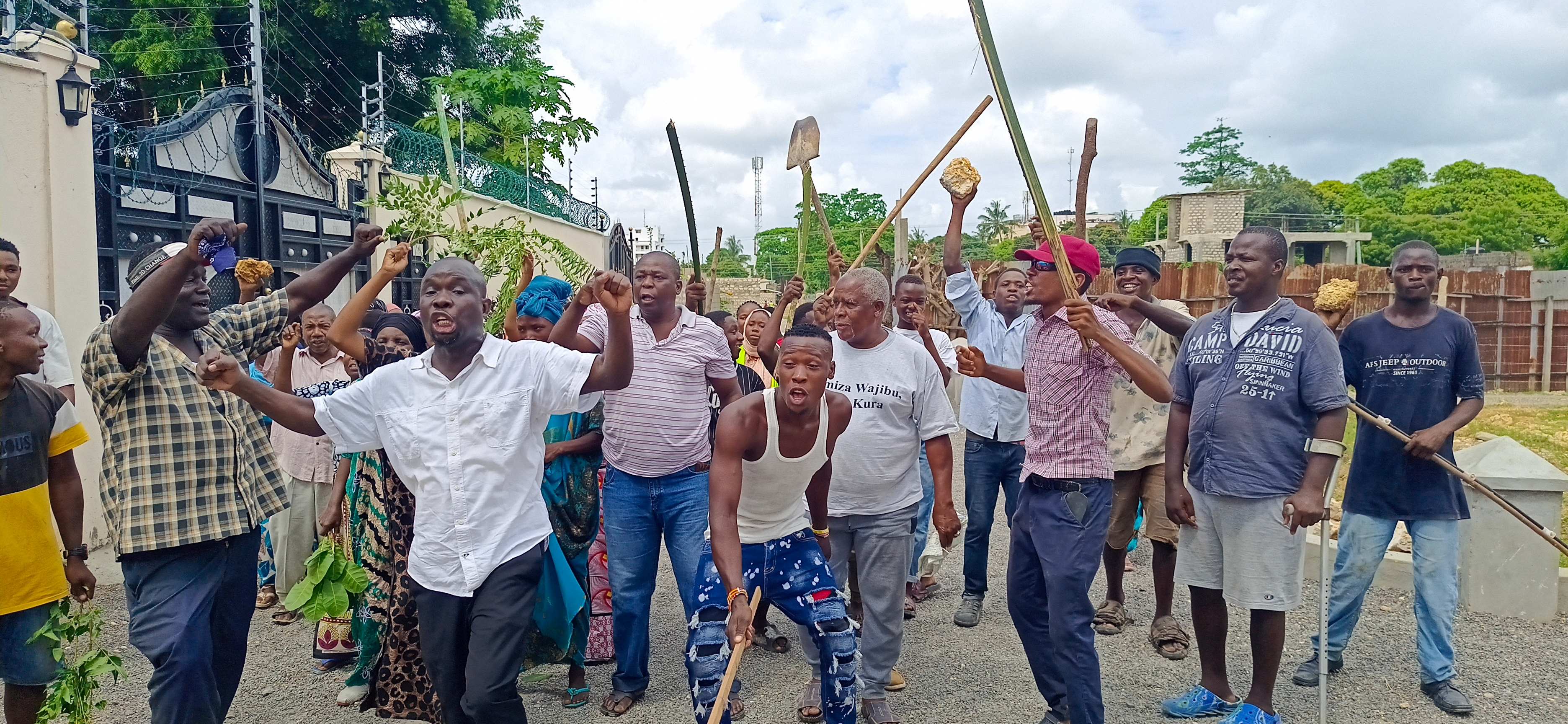
Mwanahamisi Abdalla, 50, the Utange village elder, has been having sleepless nights for the first time since December 9.
That is when she received a letter from advocates acting on behalf of a private developer to vacate a piece of land she has called home all her life.
According to the advocates, the December 9 eviction notice served as the final warning, giving the village elder 15 days to vacate the about three-acre land.
“Failure to comply with this notice will leave our client with no alternative but to engage the services of auctioneers to effect forceful eviction from the property as per the law,” the eviction notice reads in part.
The notice lapsed on Christmas eve, when Abdalla, though not a Christian, would have joined her Christian neighbours in celebration.
“We applied for adverse possession of this land, but this tycoon has been disturbing us, especially in Decembers when he knows courses are in recess,” Abdalla said.
She claims when they get orders from court, they are not enforced by police from the nearby police station, but when the tycoon takes supposed court orders, the police act with great speed.
“There was a warrant of arrest for the tycoon for skipping court summons, but that was never effected. There is another tycoon who always brings us orders and police here to disturb our peace,” she said.
She said the piece of land has three tycoons, both claiming ownership, while they searched and found out the land belongs to the government.
The land now has more than 20 permanent houses, with more than 30 families living there.
Some of the houses are posh.
Muslims for Human Rights Rapid Response Officer Francis Auma said such cases are rampant in Mombasa and most parts of the Coast region.
He said a permanent solution must be found to the land injustice that people of the Coast suffer.
“In this case, these people have lived here for over 50 years. Where has the supposed owners of the land been all these years?” Auma questioned.
“In almost all these cases, some people who are wealthy come up with all manner of court orders which are suspect to harass people,” he said.
The relevant authorities, including the National Land Commission, the land registry officers, the DCI, and the courts, should step in and protect the weak, Auma said.
“The police have also been dancing to the tunes of the wealthy. Why do they effect orders in favour of the rich and are slow to act on orders in favour of the poor? This indicates the police are pocketed by the cartels,” Auma said.
He said a solution to such problems, especially where there are absentee landlords, could be the Waitiki solution.
The Waitiki solution is where the government buys disputed land and settles those living on the land at a small, affordable fee, like it happened in Likoni with the land belonging to Evanson Waitiki.
This is what the Mombasa County government seeks to solve with the Ardhi Fund.
The Ardhi Fund was passed on December 24 in a special sitting by the Mombasa county assembly.
MCAs, some of whom were on vacation in Tanzania, had to be recalled for the special sitting to pass the Ardhi Fund, among other crucial bills.
Likoni MCA and the Mombasa county assembly majority leader Athman Mwamwiri said the Ardhi Fund once signed into law, will create a fund where the county government will set aside funds for the purchase of disputed lands with a view to resettling the landless and squatters.
“We will look for well-wishers who will give us funds which we will deposit in the Ardhi Fund. We will use these funds to purchase the lands possessed by tycoons who are not on the ground but are harassing our brothers and sisters who have invested in such lands,” he said.
He said the county will engage the NLC to determine the value of the land—the value that the settled squatters will have to pay for the lands which they will be allocated by the county after purchase.
“Our people will then get titles for these lands and will remove the despair they have. The titles will also enable them get loans from financial institutions,” he said.
He said the county will also benefit in that each title deed owner will have to pay land rates to the county, boosting the revenue collected by the county.












